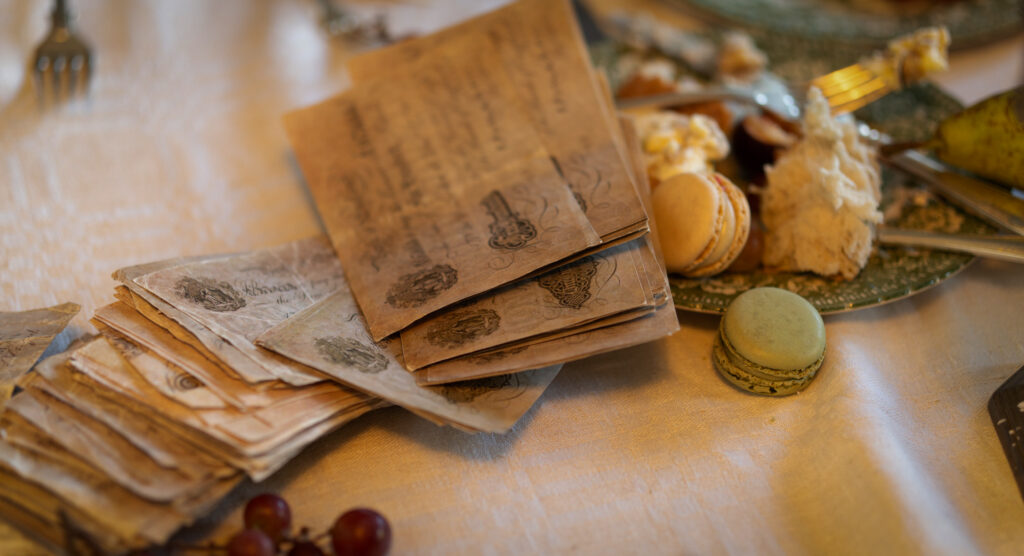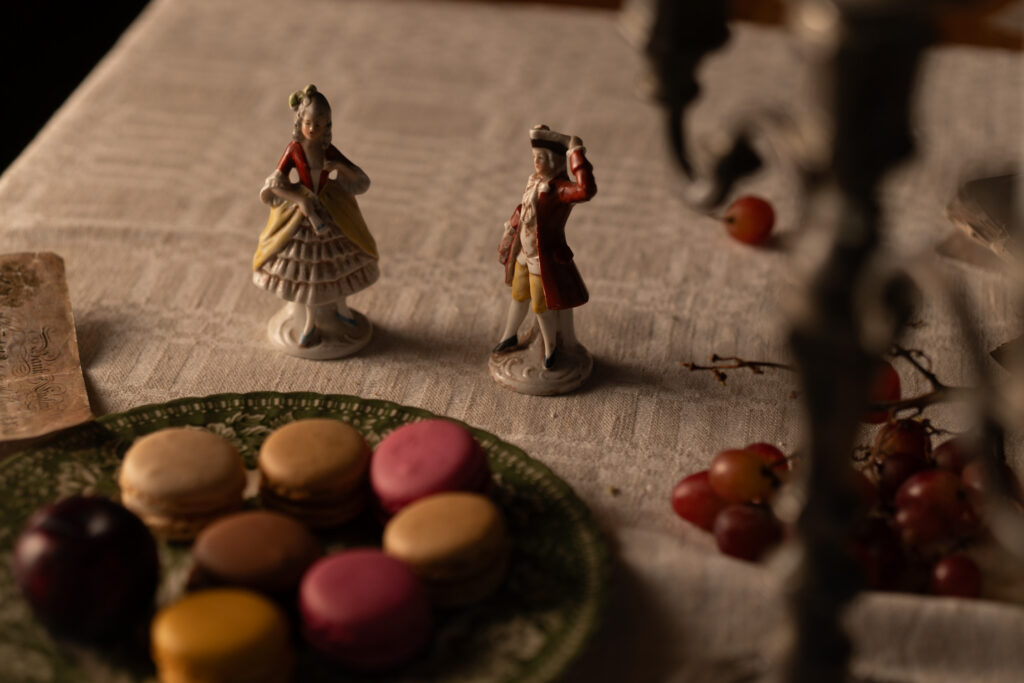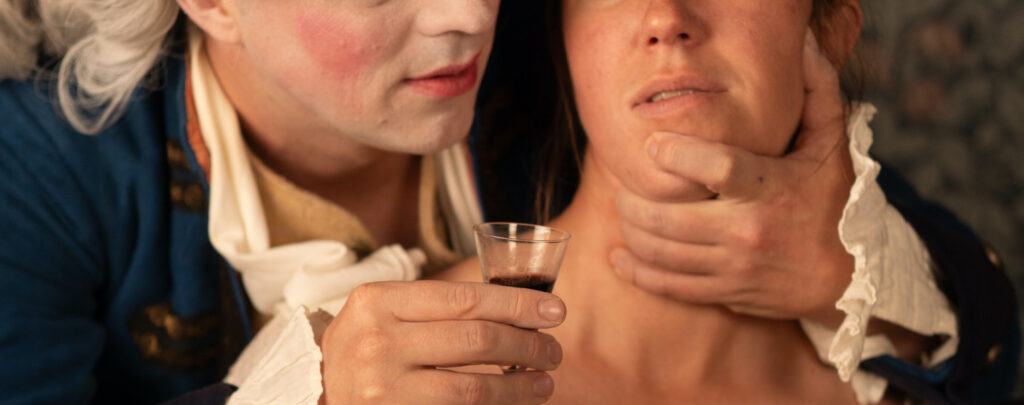The larp is set in 1795, somewhere in the English countryside. You do not need to have a thorough understanding of the 18th century to play the larp – we will provide what you need to know in sendouts before the larp.

Libertinism and morals
”A libertine is one devoid of most moral principles, a sense of responsibility, or sexual restraints, which are seen as unnecessary or undesirable, especially one who ignores or even spurns accepted morals and forms of behaviour sanctified by the larger society. Libertinism is described as an extreme form of hedonism. Libertines put value on physical pleasures, meaning those experienced through the senses. As a philosophy, libertinism gained new-found adherents in the 17th, 18th, and 19th centuries, particularly in France and Great Britain.”
– Wikipedia
Libertinism originated as a dissent against religious and moral authorities, and is a continuation of the free-thinking principles set forth by the Enlightenment. It was based on principles like questioning the traditional, rejecting restrictions and pursuing honesty. By the 18th century, however, it had in most cases devolved into a far more coarse philosophy, pursuing all kinds of debauched pleasures, mocking and defiling things considered sacred, and breaking taboos.
Although few people during the 18th century would consider themselves libertines (and at this larp, only the gentry characters identify as such), much of the 18th century was defined by relatively free morals in many regards, and reveling in pleasures and plenty. By the end of the century however, morals were becoming stricter, moving towards the more sober ideals of the regency era.

Religion and atheism
Part of the libertine philosophy often included atheism, as well as mocking and defiling various aspects of Christianity and its rituals.
Everyday people, however, were Christian. They may not have been good, pious people, but they still believed in God. Being an atheist was not socially acceptable, and being accused of being an atheist could result in being shunned in some circles in society. Unless explicitly stated otherwise, your character will be Christian, and there are kinds of blasphemy that will make them shocked and uncomfortable.
Nobility and change
In 1795, things were changing in Europe and Great Britain. Before, the power of the monarchy and aristocracy were stable, and the aristocratic classes could live in great wealth and opulence. But now, as Enlightenment ideals are sweeping the continent, as the middle classes gain wealth and influence, and as the American Revolutionary War and the French Revolution have taken place, the aristocracy can no longer take their power for granted.
The British gentry and nobility are increasingly worried that there will be revolution in Britain as well, and many are being more careful, no longer flaunting their wealth and privilege as openly. The libertines at this larp, however, all part of the landed gentry class, have refused any such concessions. They continue to live decadently and according to their own whims, almost as if defiance of the changing world order. Many of them also harbour resentment towards the middle classes, rising above their station with their nouveau riche airs.

Gender roles
In the larp, we will play on historically inspired gender roles, where the expectations, norms and opportunities for men and women are quite different. Women were certainly not without power or freedom, but generally women had less freedom than men, and were legally considered the property of either their father, husband or other male next of kin.
Diverging from gendered norms is generally not done, and is considered very scandalous. For this reason, some libertines may enjoy exploring such taboos.
Off-game, however, we of course welcome people of all genders and expressions, and your off-game gender does not restrict which gender you are able to portray at the larp.

Sexuality
There will be characters with a diverse set of sexualities at Libertines. On the surface, however, characters will live straight-passing lives, and couples who are married or engaged will consist of a man and a woman. This does not necessarily mean that the characters are straight.
Same-sex attraction was not socially acceptable in the 18th century, and sex between men was a crime.
The libertines, however, may stray outside of heteronormative bounds. Some guests may see this and hope for a safe haven for their non-hetero desires. However, it is not much of a haven when nothing is really on your own terms.